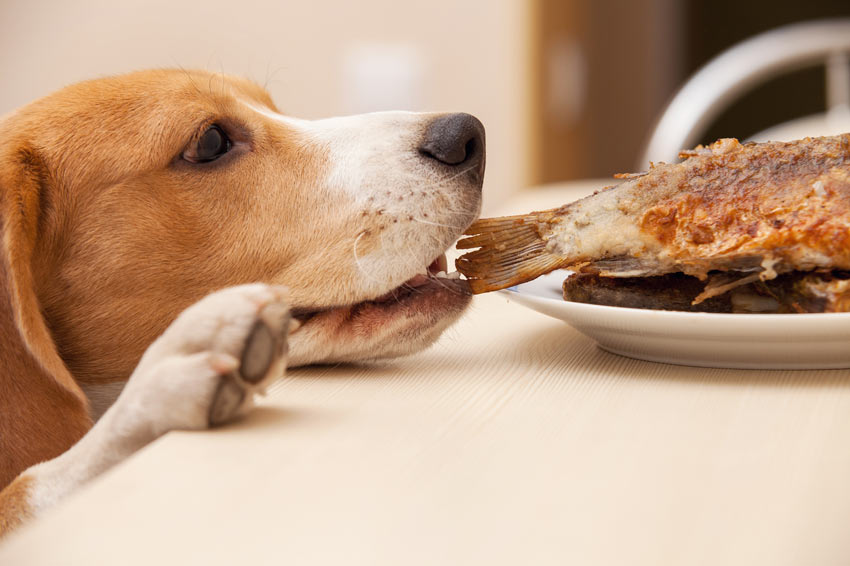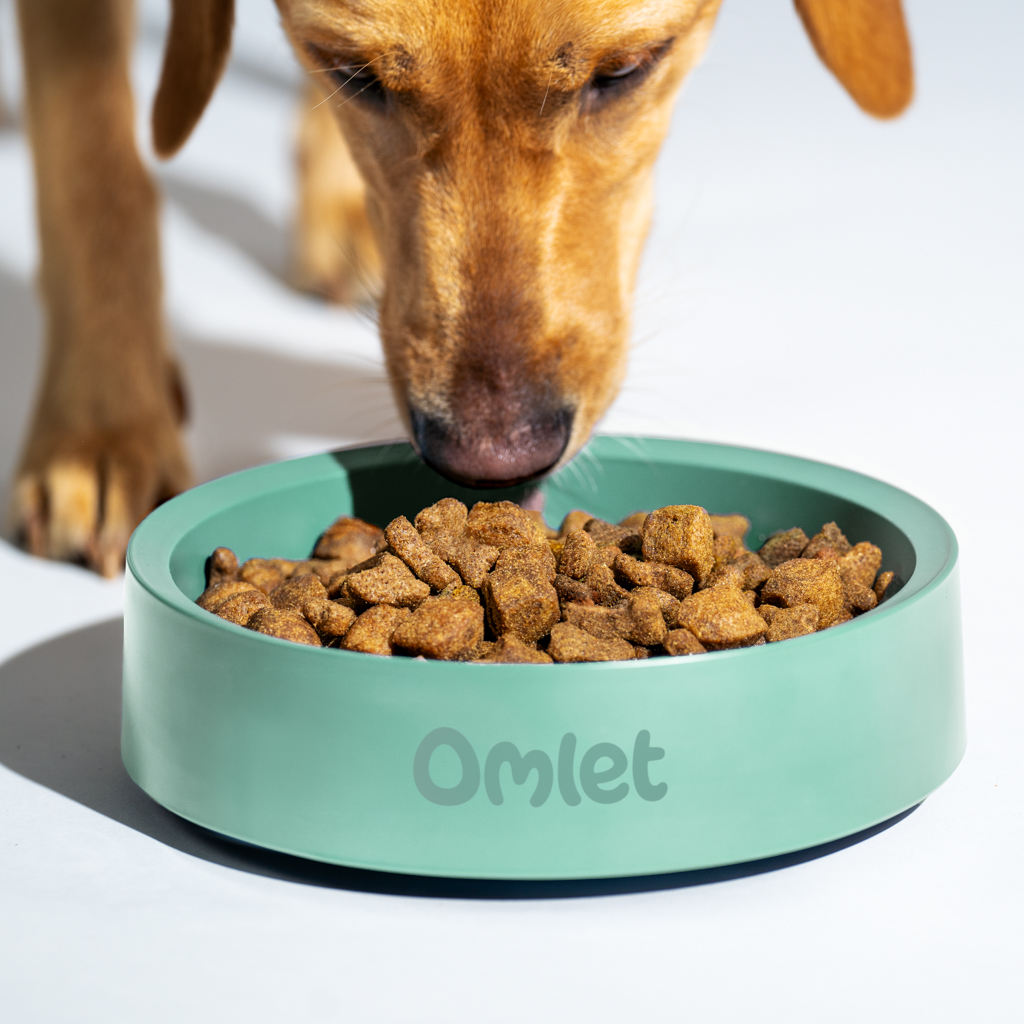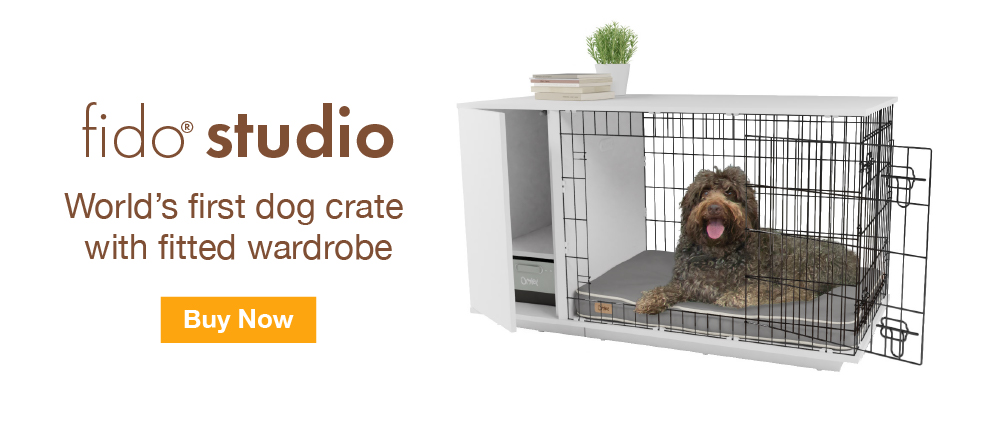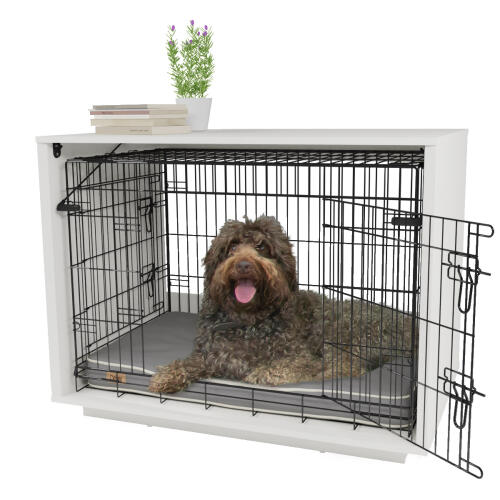As pet owners, we often delight in sharing our food with our furry companions. However, not all human foods are safe for dogs. In fact, some can be downright harmful, causing anything from mild stomach upset to severe poisoning. Understanding what foods you shouldn’t feed your dog is crucial to keeping your canine companion healthy and happy.
Are kitchen scraps ok for dogs?
We can all be susceptible to our furry friend’s puppy dog eyes willing us to give them a treat from our plate or chopping board. It's tempting to toss your pup a scrap from the dinner table, but not all kitchen leftovers are suitable for dogs. While some foods are harmless in moderation, others can upset their stomach or even pose serious health risks.
Foods high in fat, such as bacon or sausage scraps, can lead to pancreatitis in dogs. Similarly, certain seasonings and spices, like garlic and onions, can be toxic to canine companions. To err on the side of caution, it's best to avoid feeding your dog kitchen scraps altogether and stick to dog-friendly treats and snacks. Giving your dog scraps will also encourage him to scrounge, which in the end will cause you more irritation and stress than pleasure.

Keep food intended for humans out of reach of dogs, and avoid giving them table scraps
Toxic foods for dogs
Understanding which foods are toxic to dogs is crucial for keeping them safe. It's essential to keep these items out of your dog's reach and be mindful of ingredients when preparing meals or snacks.
Chocolate, coffee and caffeine: These products all contain toxins called methylxanthines, which are additives that can cause severe trauma in dogs. Even just a small amount can induce everything from vomiting and diarrhea to hyperactivity and abnormal heart rhythm, and in extreme cases can result in tremors, seizures and even death. Note: dark chocolate is the most dangerous, as it is the most unadulterated type of chocolate.
Grapes and raisins: These innocuous looking fruits may be delicious for us to snack on and seem delightful for dogs, but it’s important to avoid feeding to your canine companion at all costs. If eaten, grapes and raisins can lead to kidney failure in dogs, even in small amounts.
Onions, garlic and chives: These fragrant spices are potent to dogs and not in a good way. Known to cause gastrointestinal irritation if eaten in large amounts, these foods can cause damage to a dog's red blood cells, leading to anemia. When it comes to feeding your dog treats, bland is best.
Xylitol and other artificial sweeteners: Found in countless products, from candy and processed foods to toothpaste and soft drinks, xylitol can cause a rapid release of insulin in dogs, leading to hypoglycemia and liver failure. Always check labels to see if these are included and steer clear from giving to your furry friends.
Avocado: While rich in protein and vitamins for humans, avocados contain persin, a fungicidal toxin that can cause vomiting and diarrhea in dogs. The most toxic part of the avocado for dogs is actually the skin and stone, so make sure they’re disposed of properly, and not put at ground level in a garbage can where your dog can raid.
Nuts: Nuts, including almonds, pecans, and walnuts, contain high amounts of oils and fats which, if eaten in excess, can cause vomiting and diarrhea in dogs. Macadamia Nuts are the most toxic for dogs, causing weakness, depression, tremors, and hyperthermia if ingested. So it’s best to avoid all nuts altogether.
Alcohol: Not a food, we know, but it’s something people are often tempted to let a dog try, particularly if it's beer. Beer is made from barley and it's cold and refreshing on a hot day – surely that’s okay for dogs? Wrong. Even small amounts can cause alcohol poisoning in dogs, leading to vomiting, diarrhea, coordination problems, breathing difficulties, coma, and even death.
Raw/undercooked meat, eggs and bones: Raw meat and raw eggs both contain bacteria known as Salmonella and E. coli which can be harmful to dogs. And while it might seem natural to give your dog a bone from your cooked chicken or turkey, it’s not. Cooked bones can splinter when chewed by dogs and cause choking, digestive tract punctures, or obstruction. Stick to dog-friendly treats only.
Yeast dough: Homemade bread making may be the new trend but be extra careful if you’re leaving dough to rise on the counter and make sure it’s not within reach of the dog. If your dog eats even just a little bit of the yeast dough it will continue to ferment in the gut, causing painful gas and bloating, and also producing small amounts of toxic ethanol. In extreme cases it can cause the gut or stomach to twist, which is a life-threatening condition.
What to do if your dog eats toxic foods
If you suspect your dog has ingested something toxic, you should contact your veterinarian immediately. Time is of the essence when it comes to poisoning, so don't wait for symptoms to appear. Provide your vet with as much information as possible, including what your dog ate, how much, and when, and follow their guidance on what to do. Avoiding toxic foods altogether is always the best measure of protection for your dog and toxic illness, so be mindful to only ever give dog-friendly food and treats.
Ok foods to feed your dog
When it comes to feeding your dog, it's essential to stick to safe and nutritious options. Remember, moderation and variety are key to maintaining a balanced diet for your furry friend. Let’s take a look at foods that are ok for your canine companion to dine on.
Lean meats: When cooked completely, lean meats such as chicken, turkey, and beef are ok to let your dog have a nibble on. These meats are a great source of protein and easily digestible making them well-tolerated bites for dogs.
Certain fruit and vegetables: Ever wanted to ask your dog if they ate all their vegetables? You can because some fruits and vegetables are ok for them to eat. Blueberries, carrots, and green beans are all perfect snacks for your pup as they are rich in fiber and essential vitamins.
Peanut butter: A tasty treat for dogs, peanut butter is rich in healthy fats and protein and a yummy ‘people food’ for dogs to take with pills or in homemade dog treats. Just be sure to opt for natural peanut butter that is free from xylitol and added salt - otherwise it’s a no-no.
Dry or wet dog food: And the obvious food choice winner for dogs is canine specific dry or wet dog food. Because some foods can have hidden ingredients or may be intolerable by your pup’s palette, it’s best to stick with dog-friendly food whenever possible.

An Omlet dog bowl is the perfect way to serve your dog healthy, nutritious meals.
Omlet and your dog
As responsible pet owners, it's our duty to ensure our furry friends are well cared for, starting with their diet. Avoiding toxic foods and sticking to a balanced diet tailored to their nutritional needs is key to their well-being. At Omlet, we understand the importance of the pet-person connection and strive to provide products that enhance the lives of both pets and their owners. From dog bowls to comfy dog beds to designer dog crates, Omlet focuses on the health and happiness of your beloved companions, ensuring they lead fulfilling lives by your side.




Comments
There are no comments just yet